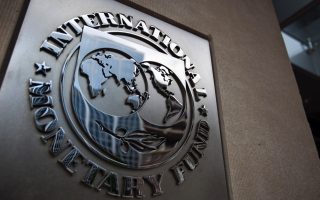Greek euro exit back on the agenda next year, economists say

Don’t pack away the currency presses just yet, Greece’s euro exit may be back on the table next year.
There’s still a danger that Greece will be forced out of the euro region by the end of 2016, according to 71 percent of respondents in a Bloomberg survey of 34 economists. Seventy percent said they reckon Greece should be safe for the rest of 2015, though almost half said they thought the 86 billion-euro ($93 billion) bailout package Prime Minister Alexis Tsipras is targeting will prove to be too small.
While Tsipras is checking off the requirements to qualify for a third bailout, the flaws in the agreement he hammered out with euro-area leaders last week are fueling concerns that Greece will struggle to implement the three-year program.
The European creditors are refusing to firm up their commitment to restructuring Greece’s debts, a move the International Monetary Fund says is essential for the country to stabilize its finances. There are also doubts about the 50 billion-euro target for asset sales and, more fundamentally, the merits of forcing more austerity on a shattered economy.
“Without some form of debt relief, the package will never be big enough,” Peter Dixon, a global economist at Commerzbank AG in London, said in his response to the survey. “Loading additional loans onto a country which cannot afford to repay them corresponds to Einstein’s definition of insanity: Trying the same thing over and over again in the expectation of different results.”
Markets closed
Greek bonds plummeted during Tsipras’s six-month clash with the country’s creditors, with the yield on the 2017 bonds exceeding 30 percent before most trading was halted on June 26. The same debt was yielding less than 4 percent in October and about 10 percent when Tsipras took power in January.
Greek financial markets will remain closed at least until parliament has voted on a second package of bailout measures on Wednesday, according to two officials. The government is drafting a decree to allow selective waivers on capital controls, and the best-case scenario is for markets to reopen Thursday, one of them said.
The government submitted a bill detailing its next set of measures to parliament in the early hours of Tuesday. The bill includes the implementation of a European Union directive on how to resolve failing banks.
Tsipras did manage to reopen the country’s banks on Monday and he will ease somewhat the restrictions on withdrawals over the next two weeks. The government also cleared its 2 billion euros of arrears with the IMF, made an overdue payment of 470 million to the Greek central bank and covered 4.2 billion euros of interest and principal payments to the European Central Bank.
The creditors plan to wrap up talks on the terms attached to the country’s new bailout by Aug. 6, and disburse the first tranche from the program to the debt-stricken country by Aug. 17, an international official with knowledge of the matter said. Greece has to pay the ECB another 3.2 billion euros on Aug. 20.
ECB President Mario Draghi last week joined the IMF in calling for debt relief to help the Greek economy recover but German Chancellor Angela Merkel ruled out a cut in the nominal value of the country’s debt and said she’s not prepared to ease the repayment terms just yet.
“Apart from Germany, it appears that most people are in agreement that Greece needs a substantial debt writedown,” said Alan McQuaid, chief economist at Merrion Capital Group Ltd. in Dublin. “Unless they get it, it is hard to see the country surviving within the euro zone indefinitely.”
[Bloomberg]





